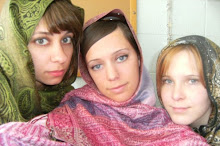I’ve been reading New York Times reporter Dexter Filkins’ book The Forever War this summer, which is an account of the several years he spent in Afghanistan and Iraq covering the war for the Times. At first I just loved the book. Filkins is an outstanding writer, using vivid words and succinct descriptions to convey a sense of what it’s like to be in the midst of a war-torn country, watching a war fought in the fuzzy gray between the black and white each side alone sees.
But soon the conflicts of right and wrong started to get to me. Filkins is being un-American, I thought; he’s purposely choosing unflattering episodes to recount and conversations to convey. American soldiers are gullible, unrestrained, unnecessarily violent- or are they, Dexter? I asked. But then Filkins started talking about Al Quaeda and the Taliban, and all the horrors thy inflict on everyone they can reach. Sometimes they target their own people, sometimes Iraqis only get hurt because they were in the way of getting to Americans. Not to mention that many Iraqis and Afghanis grew up in a world of war before the Americans ever entered their countries; they fight under quarreling warlords, switching sides when it looks like one is stronger than the other, killing the men they fought with the day before. Just orders.
So the Americans are liberators; they’ve freed us, set up order and given us another chance at a free life. We’re glad they’ve come. Or are you, Iraqis? I demanded.
In a city just over the Syrian border, a man asked Filkins to have lunch with him. The reporter agreed because he was desperate for someone to talk to in that city. So the man offered him a feast of a lunch, feeding him till he was stuffed. “Maybe, now” he said to one of Filkins’ Iraqi colleagues, “the food will stick in his throat and he will choke.”
They continued to talk, friendly, until the man asked his guest if he could show him a video. The video was of an American man being killed by Iraqis. Filkins’ host rocked back and forth, delighted. Yes, kill the Americans.
Finally, halfway through the book, I realized that neither the Americans or the Iraqis are completely black or white. Nothing is clear-cut and simple. Neither understands the other; neither fully knows what the other is trying to accomplish. Everyone lies, everyone assumes the other side thinks like they do, and wonders when they will understand what’s going on. Don’t they know, wonder American commanders, that if they stop targeting us we’ll stop retaliating? Don’t they know democracy is better?
Don’t they know, wonder the Iraqis, that we don’t want them here? That democracy will never succeed because the strong ones don’t want it? Don’t they know this is our way of life?
When will they understand?


